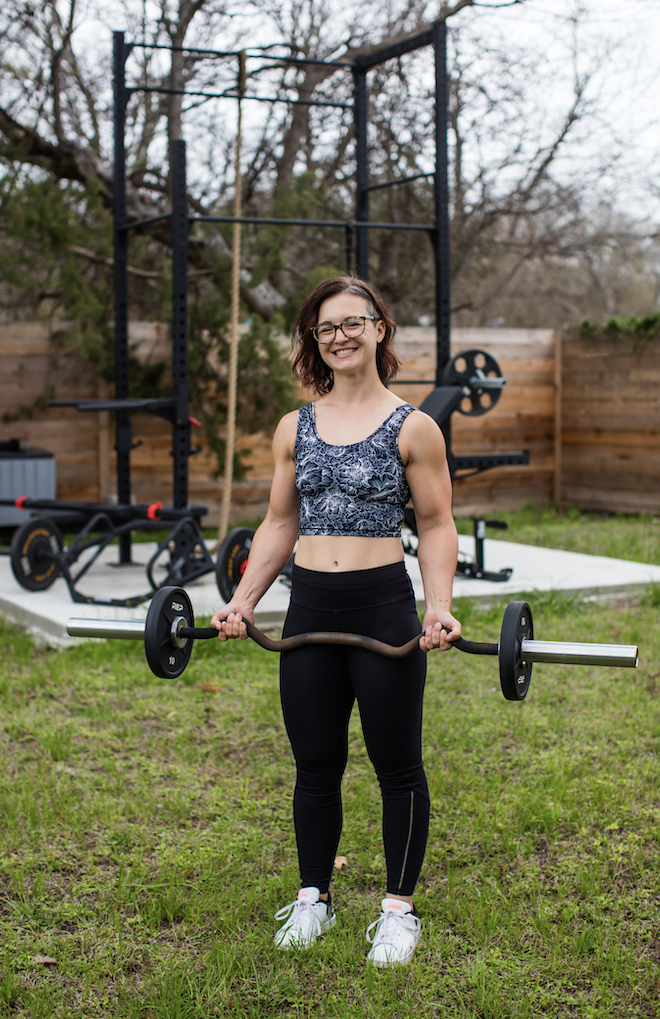Speaking About Your Body In Front of Children

In many years of training clients, one unfortunate recurring theme pops up, particularly in female clients. The details change slightly, but the overall message is the same — they dislike their body, have a poor relationship with food and can distinctly remember being very young when they first became aware that they should be watching what they eat.
For some, this came in the form of comments from family members — “Are you going to eat all that?” or “Wow, you eat a lot for a girl!” For others, it was watching and listening to a parent talk about their own body negatively and witnessing a constant cycle of fad dieting and unhealthy behaviors.
There has been a positive shift starting in the fitness industry over the last few years focusing on moving your body for the joy of it and eating well most of the time, while still enjoying the things that make life full. Even with these changes, clients of all ages come in with similar body image and food relationship issues from childhood and adolescence.
Parenting is no easy task. You must be mindful of your language being inappropriate and the way you speak about yourself, your body and food around your family. Children are always listening and observing; they take many of their cues on how to feel about their own person from the way their adult role models behave. Seeing a parent going through binge and restricted eating patterns in an endless cycle is just as damaging for the child as it is for the parent. Those seemingly harmless comments you make about your own body are heard and processed, and children will internalize them — suggesting that it’s necessary to cleanse or eat salad after eating a piece of cake or pizza, not being able to enjoy summer unless you change your body, commenting on a stranger’s weight and appearance. All of these things may seem innocuous, but your children are listening and learning that these actions are normal, and they start to believe that they, too, need to be concerned about how their bodies are perceived.

The comments you make to your children about their own choices shape them and can have a lasting impact on how they view themselves, carrying over into adolescence and adulthood. I have heard client stories that run the gamut from grandparents commenting on how much a (growing!) toddler-aged child can eat, to parents letting their teenage children know they should drop a few pounds, to parents telling their adult children they’re “fat.” These are more extreme examples, but even small comments about how much/what your child eats or how much they weigh can lead to a lifetime of unhealthy food and exercise patterns.
It can be hard to always set a good example but becoming aware of your own struggles with self-love, fitness and nutrition is a good starting point. Being mindful of the language you use when you speak about yourself and your friends and family members’ bodies goes a long way in creating a positive mindset for your children. Kids hear you on the phone with a friend talking about how much you need to diet or the comments you make about your body in the mirror when you’re getting ready for the day. Seemingly harmless comments about a celebrity or stranger, whether it’s a joke about their weight or praising someone for getting slimmer, are teaching our children that our worth is inherently tied to the way our body looks and that being thin is a valuable life goal. Start by shifting the way you talk about yourself, and you’ll be leading by example.
Being mindful of the way we speak to and about our children is just as important. Children will remember how you made them feel about themselves, and providing them with the tools and understanding that eating and moving our bodies do not have to be viewed as ways to control our self-worth will help them move into adolescence and adulthood with more confidence in themselves. Everyone wants their children to be healthy and happy, but many get caught up in their own insecurities, projecting their fear of weight gain and similar issues onto their children.
Break the cycle with your own family, and teach your children that bodies change over time, food is so much more than something that needs to be restricted, exercise can be fun, and they are complete and worthy humans regardless of how their weight is perceived by others. How we speak matters and can impact our children’s lives, for better or for worse so be the example you wish you had when you were young.
About the Author

Sarah Leahy is a Minneapolis transplant in East Austin, certified personal trainer, award-winning interior designer and former gym owner. She offers in-person and online training with an emphasis on strength training and building confidence in and out of the gym. Leahy’s passion for strength extends to your business, with a full offering of gym design and business consulting services.






